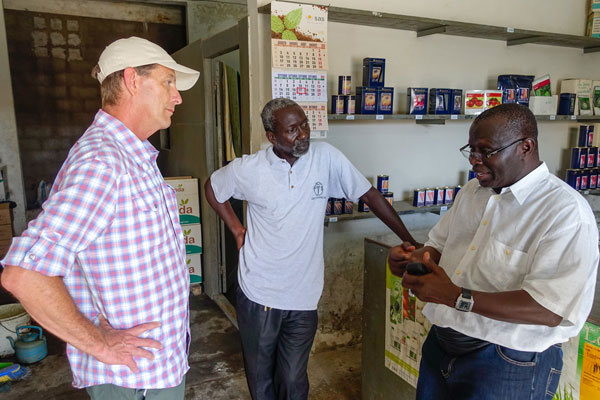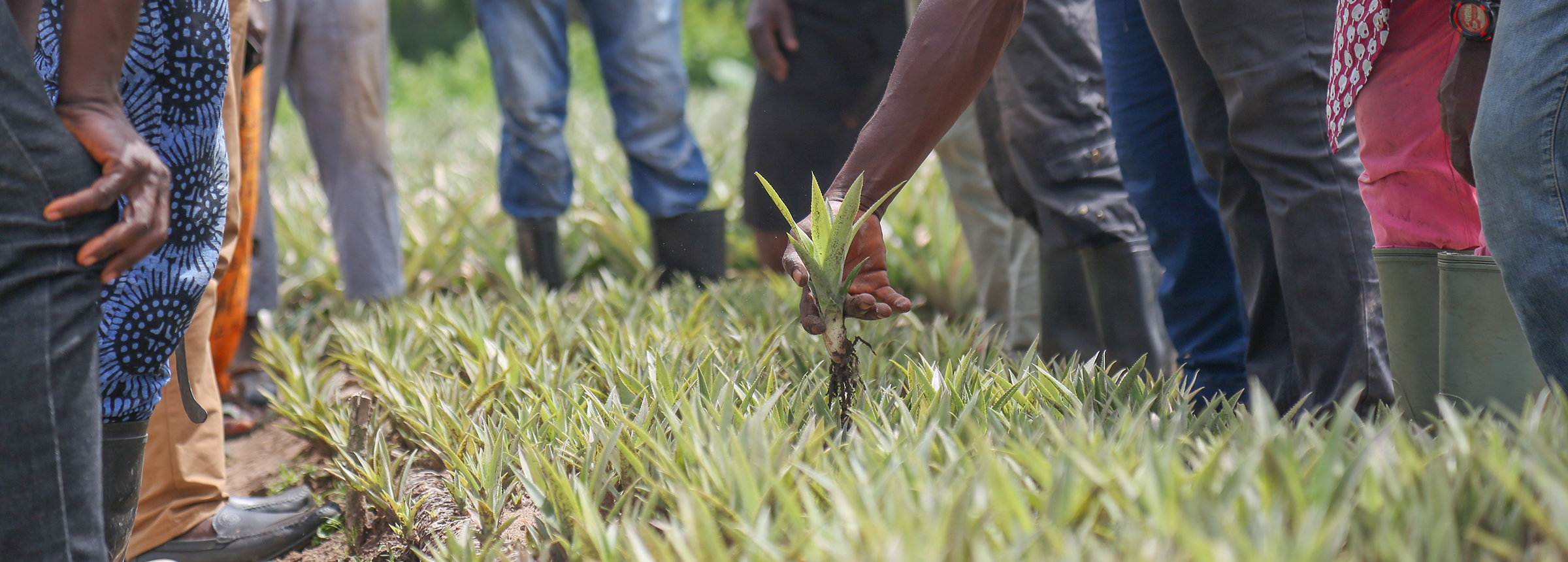
Branching Out with Farmer-to-Farmer
How F2F volunteer Ples Spradley gained new perspective in Senegal
Ples Spradley has deep Arkansas roots. Seven generations of his family have lived in the state, a line stretching all the way back to 1842. An associate professor at the University of Arkansas, Division of Agriculture, Spradley still lives in his hometown of Little Rock, growing blueberries and pecans on a farm with his wife. But despite these longstanding ties, part of his heart lives far away – in the African nation of Senegal.
When Winrock International tapped Spradley, a pesticide expert, to volunteer for the USAID John Ogonowski and Doug Bereuter Farmer-to-Farmer (F2F) program in 2015, he jumped at the opportunity. Funded by USAID, the program sends mid-career or retired professionals like Spradley on two to three week assignments in developing countries. These expert volunteers then promote sustainable improvements in food security and agricultural processing, production and marketing.
“I had thought about doing foreign service work for a long time,” he says. “When Winrock called, I just decided to take the chance, especially since everybody in my family had been to Africa but me.” All four of Spradley’s children have spent time abroad, he explains – two of his daughters even served in the Peace Corps. “They all had wonderful experiences. So it was just too good to be true – and it’s been that way ever since.”
On his first F2F assignment, Spradley spent a month traveling all over Senegal with Winrock staff, interviewing everyone from government officials to salespeople to farmers about all aspects of the country’s pesticide use. These assessments would lay the groundwork for his return assignment in 2017, during which he directed trainings for local pesticide specialists. Despite nearly 30 years of experience in pesticide education, Spradley found himself challenged by the context of a developing country.
“In Senegal, I had to address the fact that these people couldn’t afford anything,” he says. “What’s the best way to actually protect them? If you can’t afford rubber gloves, you can’t get boots, you have to really concentrate on what is the most problematic chemical that you’re exposed to, and figure out some basic steps that might help.” And of course, Spradley’s all the more eager to solve these challenges after bonding with beneficiaries. “The Senegalese people are – gosh, they’re just so hospitable and easygoing,” he gushes.
As Spradley sees it, programs like F2F aren’t just beneficial – they’re a responsibility for American specialists. “I’m not saying we have all the answers, but we do have something to offer, and our country is rich enough to support this kind of program,” he says. Of course, F2F beneficiaries aren’t the only ones who benefit from the program. “Every time I go back, I learn more about what I could do to improve,” he says. “I look forward to going back and doing more.”
Spradley has no plans to leave his Little Rock farm permanently anytime soon – but his time in Senegal has expanded his world immeasurably, far beyond the borders of his native Arkansas.
“I feel very strongly that people living in developed countries should spend time in a developing country,” he says. “There’s a bigger world out there — go out and experience it. Get out of your county.”
Related Projects

